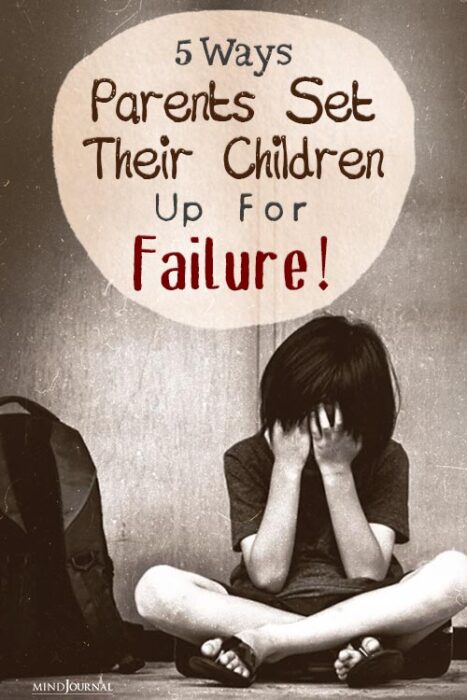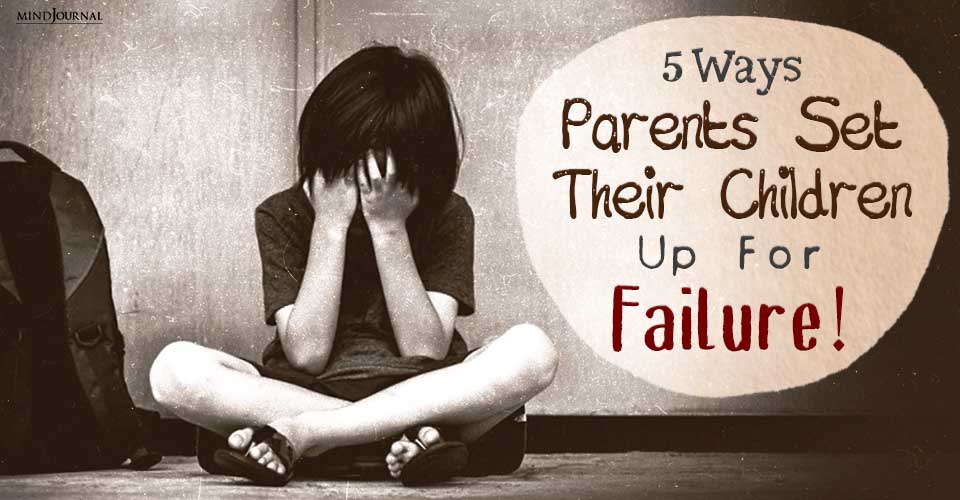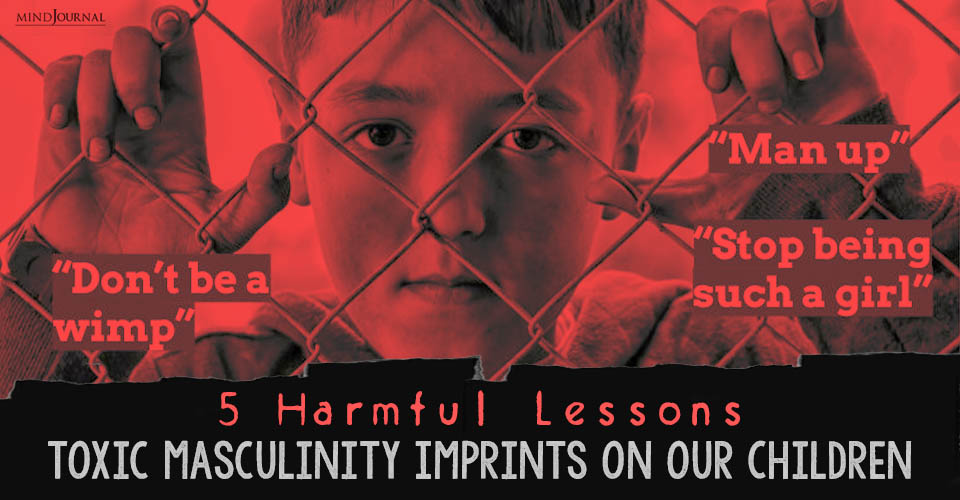While parents usually want the best for their kids, their good intentions can cause some actions or practices that unintentionally obstruct the success of their children.
It is important to know how these stumbling blocks set their children up for failure to nurture a climate favorable for personal development and accomplishment.
This article highlights 5 ways parents set their children up for failure, that are often ignored by parents when raising their children, leading them toward failure, and provides solutions for each of them.
5 Ways Parents Set Their Children Up For Failure

1. Always Being Overprotective And Controlling:
Sometimes even parents can be too careful that their children do not get hurt or feel uncomfortable. However, if they never face any hard problems how will they ever cope with them?
That’s like saying you’ll never teach someone to ride a bike because they might fall off; but sometimes that is the best way to learn.
Kids need a little push sometimes —a small obstacle to figure out on their own. If parents always solve all of their problems for them, then they won’t know how to do it themselves—how could they?
So, let them take responsibility to build independence and problem-solving skills.
It is during trying moments that kids learn about resilience. Such as when you release the bike but help it up until it starts on its own.
That’s resilience, and it’s important in life. If children aren’t given challenges by their parents, then how will it feel like overcoming something hard?
Read More: What Is Toxic Parenting? Signs And Ways To Deal With Toxic Parenting
2. Unrealistic Expectations:
One of the major ways through which they set their children up for failure is by having unrealistic expectations for their kids.
At times parents want their kids to do things that are simply too difficult for them at this point.
They would want them to excel at everything without a second thought of what is realistic considering one’s age and where there may be weaknesses that still need time and assistance.
This can often make children feel like no matter what, nothing is ever good enough. And then anxieties arise… “What if I mess up?”
Instead of adding unnecessary stress onto children’s shoulders and setting their children up for failure, parents should cheerlead for every goal achieved and a skill learned so far. Regardless of whether or not it was done perfectly right away or not.
When parents focus more on achievements, they set their children up for failure just through their expectations.
Children gain more confidence in themselves and their abilities. And this way, they won’t have to worry about trying to be the best at everything all the time.
Read More: Explore What Is Helicopter Parenting And Dangers Of Helicopter Parenting
3. Absence of defined limits:

Kids are set up to fail, unknowingly, by their parents when they fail to establish a foundation for family rules.
One of the worst ways parents set their children up for failure is by establishing clear rules and regulations for kids.
They may commit misdeeds without knowing because no one took the time to instruct them not to do so and what would happen if they made that mistake. However, that’s where the problems start.
Rules need to be followed by parents as this will enable children to comprehend clearly what is expected of them and how they should act towards anything uncertain involved. For young minds, having boundaries is like having a map.
This way children tend to take responsibility for their actions while at the same time learning why it is necessary to adhere to such guidelines even when it is difficult.
Also in this way of setting limits, boys and girls learn different ways on how they can well treat each other with respect and dignity equally. It’s just about knowing when somebody needs some space or consideration for their feelings sometimes
Therefore, by laying down simple guidelines that ensure that kids follow them religiously; parents prepare them for a journey wherein values such as responsibility and respect become clear-cut.
Read More: Eating Disorders in Children: 10 Warning Signs Every Parent Must Know!
4. Imbalanced Achievements:
A child needs more than excellent grades or medals won at sports competitions. Emotional intelligence as well as social skills are things we need in life not merely passing exams or scoring goals in games.
Parents could think success matters most but this makes children think they have always done the right thing at all times and hence cannot make mistakes in any case also lack empathy as well as kindness with others together with disgraceful behaviors like being impolite.
5. Emotional Support Neglect:

Parents set their children up for failure when they do not take the feelings of their children seriously. They have feelings and they count.
No one can be compared to a parent in the eyes of their child as far as providing support is concerned, especially at difficult times or when the child is anxious about something. This will expose mothers and fathers to failure if they are not active.
However, when kids grow up, they tend not to be able to form connections with others or deal with hard things on their own, since no one understands their feelings.
On the other hand, it makes all the difference in the world for young people if their parents are understanding and supportive. If anything it makes them stronger by assuring them there is someone who has got their back no matter what happens.
It also helps a person learn more about oneself and understand his/her limits better when he/she talks about emotions and sets boundaries.”
While parenting may seem like such a daunting task having multiple faces at once, and keeping these dangers in mind would help parents create an environment that nurtures this growth conducive to the success of their children.
By fostering resilience, independence, and emotional intelligence among others; parents should embrace these principles so as to enable children to overcome challenges in life and achieve greatness.
Read More: 7 Self-Discipline Strategies To Teach Children Self-Control
Take A Moment To Look At Your Actions
Learning how to be the best parent for your child can be tough and complex. But parents who know the traps can avoid them and make their kid’s experience better. Parents need to understand their actions can set their children up for failure.
Kids need encouragement, resilience, independence, and emotional smarts. These are tools in their belt to tackle what life throws at them.
It’s more than just providing food, water, and shelter for your child. It’s about making them feel good about themselves too. Being there when they are down and just listening can make so much of a difference.
With all of these traits guiding them they will be unstoppable in achieving their dreams. Giving them hope is like giving them a map towards success.
Frequently Asked Questions (FAQs)
1. How do parents set their children up for failure?
Parents can inadvertently set their children up for failure by being overprotective, setting unrealistic expectations, lacking boundaries, overemphasizing achievement, neglecting emotional support, and failing to role model positive behavior and values.
2. Why is being overprotective harmful to children?
Being overprotective prevents children from developing resilience and problem-solving skills. It hinders their ability to face challenges and adapt to new situations, ultimately limiting their growth and independence.
3. How does a lack of boundaries affect children?
A lack of boundaries can confuse children about acceptable behavior and consequences. Without clear guidelines, children may struggle to understand expectations and exhibit inappropriate behavior, hindering their development of accountability and respect.















Leave a Reply
You must be logged in to post a comment.